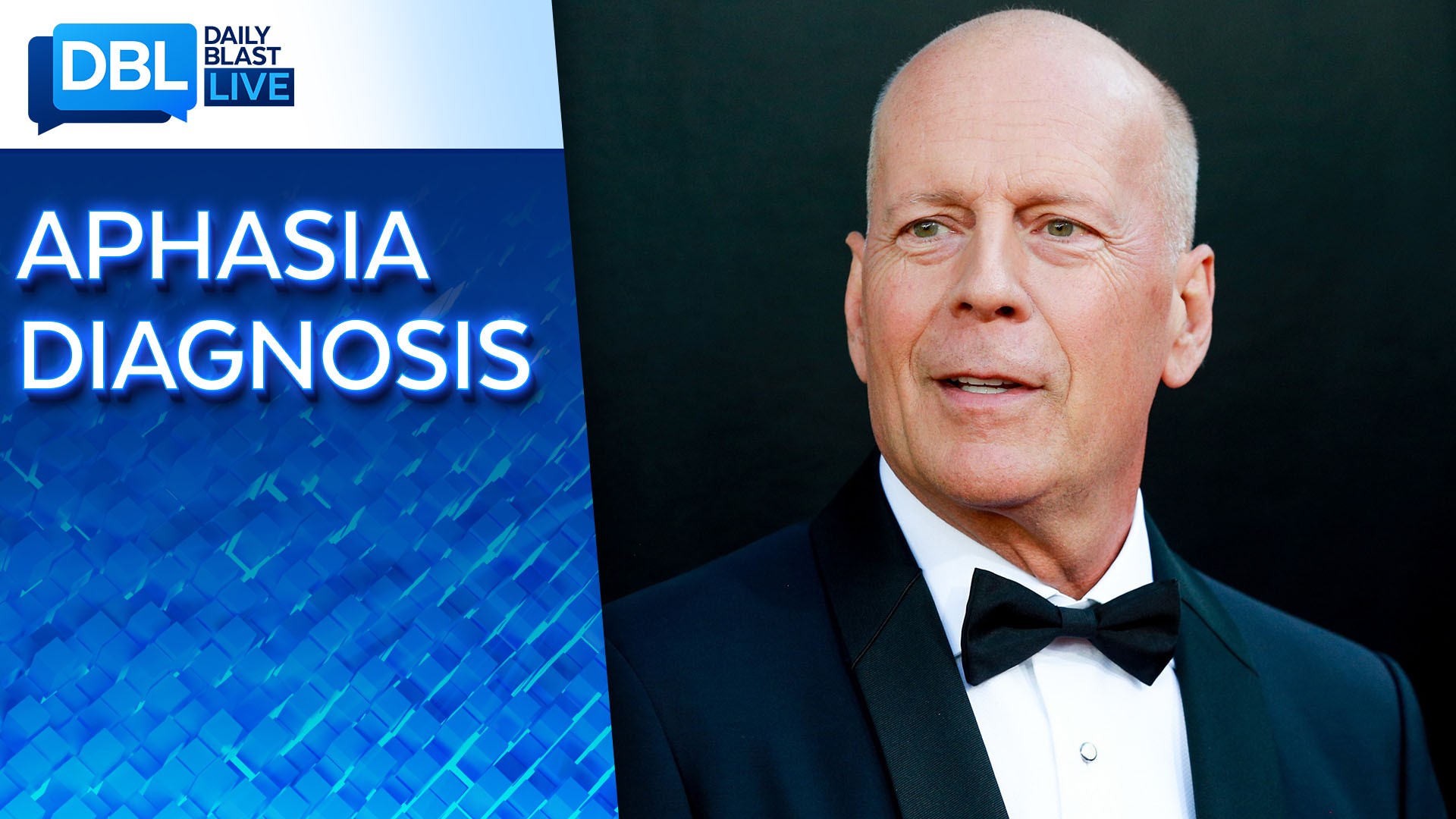WASHINGTON — On Wednesday, the family of legendary actor Bruce Willis announced on social media that he is "stepping away" from his decades long career following recent health problems.
At the center of the "Die Hard" star's retirement is the condition known as aphasia, which his family said is "impacting his cognitive abilities."
But what exactly is aphasia? How does it affect cognitive abilities, and what causes it?
What is aphasia?
The word "aphasia" is Greek and roughly translates to "without speech," which is essentially what the condition is.
According to the Mayo Clinic: "Aphasia is a condition that robs you of the ability to communicate. It can affect your ability to speak, write and understand language, both verbal and written." Approximately 1 million people in the United States have aphasia, and about 180,000 develop it each year, according to the National Institutes of Health.
There are varying types and severity of aphasia, but they typically fall into three types: expressive aphasia, comprehensive aphasia (also known as receptive, fluent or Wernicke's aphasia), and global aphasia.
As Ohio State neuropsychologist Tracy Shannon explains, expressive aphasia is almost like "tip-of-the-tongue syndrome times a thousand." In other words, the person often knows exactly what they want to say, but they have difficulty finding the words to express themselves.
Comprehensive aphasia is the inability to understand language and speech, according to Shannon. People with this type of aphasia may be able to form words without difficulty, but their sentences may not make sense because they do not understand others' questions to them or they do not understand their own speech.
The Mayo Clinic explains that global aphasia is a combination of both expressive and comprehensive aphasia. In other words, people with global aphasia will have trouble both understanding others and forming words.
What causes aphasia?
Although there are cases of people born with aphasia as a result of a congenital disease, aphasia most commonly is a result of a head injury or stroke. It can also be onset by a brain tumor or neurodegenerative disease, according to the Mayo Clinic.
The left side of the brain is responsible for humans' ability to understand and use language, and damage to this side of the brain can result in aphasia, according to Susan Wortman-Jutt of the Burke Neurological Center.
Specifically, the left side of the brain contains the Brocca's area, which is responsible for language production, and the Wernicke's area, which is responsible for language comprehension, Wortman-Jutt explains. Thus, if the Brocca's area is injured, people tend to form expressive aphasia, and if the Wernicke's area is injured, comprehensive aphasia is formed. Damage to both areas results in global aphasia.
Fortunately, other parts of the brain also contribute to language abilities, and many parts of the brain that control movement can often assist people with aphasia in communication, Wortmann-Jutt said.
How is aphasia treated?
Unfortunately, there is no cure for aphasia, but there are some treatment options for those diagnosed with the condition.
Patients with aphasia generally enroll in speech therapy, which works by rehabilitating the brain to properly understand, use and pronounce words, according to the Mayo Clinic. Researchers are also studying certain drugs that could one day help people with aphasia.

